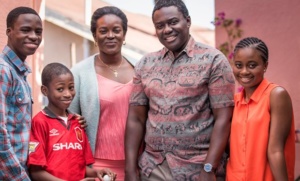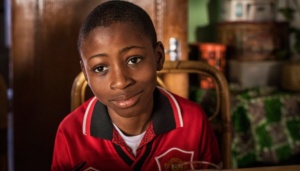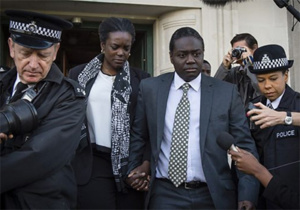By Peter Olorunnisomo – The turn of movie themes and plots took an admiring turn of crusading not for the native but for the migrant. This genre of movie usually suffers the invocation of a never-ending protest against public institutions or a government (decision or act). This is the stuff acted out on the streets of western nations more than finding creative realizations on stage or film except if it benefits from time-doused history or the benevolent disposition of a contemporary society. Such it is that A Woman Called Moses made impact with the acting prowess of Cicely Tyson and the world marveled in the embarrassment of Alex Haley’s Roots and The Meeting became a ritual of the theatre to portray the dearth of black plays and story lines.

BAFTA, however, took a dramatic turn to this tradition as echoes of tragedy resonated through the screens to find recognition among the elite crowd of the creative muse and the masked people who determined the fate of Damilola, Our Loved Boy. Here’s a review.

The fatal attack on Damilola Taylor in Peckham in 2000 remains ingrained in the public consciousness. The thought of an innocent 10-year-old, all alone and bleeding terribly on a stairwell, is a heartbreaking, lonely image that’s impossible to forget.

Damilola, Our Loved Boy (BBC One), a fine drama by Levi David Addai, took us into the lives of the Taylor family, telling the story primarily from the perspective of Damilola’s father Richard who, in the intervening years since his son’s murder, has campaigned untiringly for better opportunities for young people in south London. His work has culminated in the opening of the Damilola Taylor Trust community centre.
There was a warmth to the early scenes as we followed Damilola’s wide-eyed journey from Lagos to London, immersing us in his world of family parties, football, table tennis and computers. He skipped down the street and leapfrogged over concrete bollards.
Whether it was in a plane above the clouds or a bus through the unlovely streets of Peckham, “Dami” had his nose pressed against the window, soaking up the sights. And yet there was always a humming sense of foreboding in the build up to Dami’s death, which happened off-camera. When he didn’t return from school, mother Gloria’s mounting panic was gut-wrenching.
The majority of the film focused on his parents’ grief and quest for justice. The Taylors struggled to stay united but love just about survived. The performances from Babou Ceesay (Richard) and Wunmi Mosaku (Gloria) were superb, much of the acting done with the eyes and with body language. Meanwhile, Sammy Kamara as Damilola was luminous and full of life.
Sensitively made with the support of the Taylor family, this was above all a portrait of a family: the mealtimes, bedtimes, good times and bad times. Of course, it was deeply moving, yet Damilola, Our Loved Boy was also inspiring as Richard conquered his anger at the injustice of it all and found his campaigning spirit.
The closing caption read: “Since Damilola’s death, 204 teenagers in London have died as victims of knife crime. Richard’s work, in Damilola’s name, continues.” This terrific piece of TV was a fitting tribute to them all.










